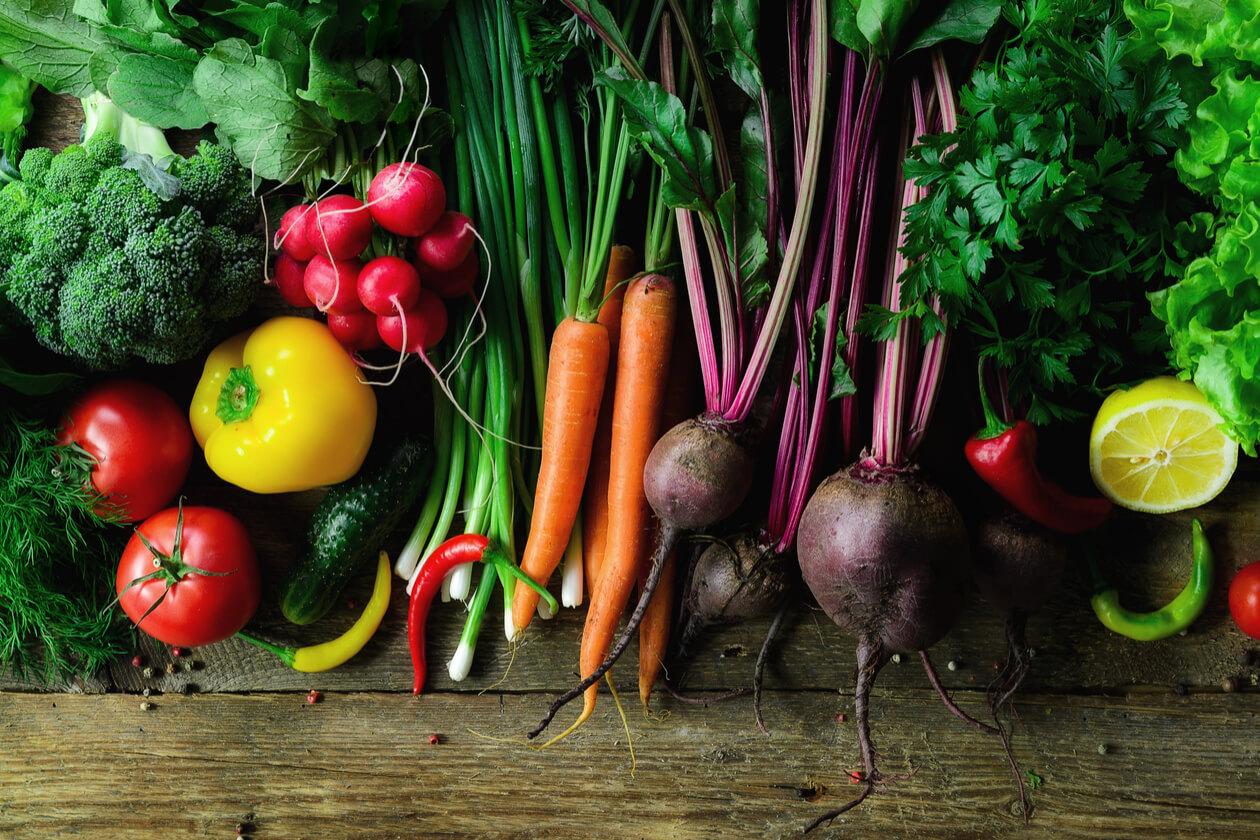有機農業は、地球規模の食糧システムの課題に対する解決策となり得るだろうか?1920年代に有機農業運動が始まって以来、人々の間には常にその期待があった。有機農業は健康で生態学に即し、社会的にも公正だと考えられてきた。
「有機農業は環境を壊さずに良質な食糧を世界中に供給する。気候変動にも強く、農業者の生活も改善できる」。消費者、農業生産者、科学者、そして国際機関に至るまで、多くの人がそのように信じて疑わない。
しかしながら、現代のその他の多くの重要課題と同様、有機農業は科学的証拠よりも感情論によって語られる傾向がある。実際のところ、有機農業には利点もあれば欠点もある。
サイエンス・アドバンス誌に本日掲載された論文の中で、私たちは、環境負荷・生産者メリット・消費者メリットという3つの主要な視点から、有機農業と従来型農業の効用を体系的かつ厳密に比較評価した。可能な限り、私たちは過去に発表された定量的研究の蓄積の上に立ち、いわゆるメタ分析に基づいてこの評価を行った。その上で私たちは、過去の数々の研究が、有機農業の有効性をどのように判定してきたかを検証した。
結論から言うと、「有機農業はたしかに重要だ」という評価が得られた。ただしそれは、多くの人が有機農業に抱くイメージとは必ずしも一致しなかった。
環境負荷
隣接する従来型農場との比較において、有機農法を採用する農場は環境により良いはずだと、多くの人が考える。だが、私たちが得た研究結果はそれほど単純でもなかった。結果を詳しく見ていこう。
メリット:有機農法を採用する農場では、生物多様性が増し、より多くの蜜蜂、鳥類、蝶類が生息する。またそこは良質な土壌や水を生み出し、そこから排出される温室効果ガスも少ない。
デメリット:一般的に、有機農法における生産収量は、従来農法よりも19%~25%ほど少ない。この生産性の差異に注目し、生産単位あたりの環境負荷を厳密に精査すると、有機農業の優位性は揺らぐことになる(過去にこの問題を検討した研究は少ない)。実際問題として、水質、温室効果ガス排出などいくつかの変数において、1ヘクタールあたりの収量が低いほど環境負荷は増すため、有機農法を採用する農場は従来型農場よりも環境に与えるダメージが大きい場合もある。
消費者側のメリット
有機農業が消費者にメリットをもたらすかどうかについては、様々な議論がある。
メリット:例えばインドなど、農薬規制の緩い国々の消費者においては、有機農産物には農薬摂取を減らす効果が期待できる。また、一般に有機農産物は、各種ビタミンや二次代謝物質を比較的豊富に含有する。
デメリット:科学者たちは未だ、食品に含有される微量栄養素の違いが、実際私たちの健康にどの程度の違いをもたらすのかを検証できていない。有機食品とその他の食品の栄養価の差は非常に小さい。必ずしも有機農産物でなくとも、日々、リンゴを1個多めに食べるだけでもその栄養差は補える。有機食品はまた、現在のところその他の食品より高価であり、したがって低所得の消費者には手が届きにくい。
生産者側のメリット
有機農法は、たしかに生産者にある一定の利益もたらすが、そこにはコストの問題など、多くの未知の要素がある。
メリット:北米、ヨーロッパ、インドにおける過去の研究を網羅したメタ分析によれば、有機農法は従来型農法よりも、一般に最大35%増の利益を上げている。また有機農法は従来型農法よりも労働集約的であるため、農村部での雇用機会が増える。しかし労働者にとって最大の利点は、有害な農薬に晒される機会を減らせる点である。
デメリット:有機農法を採用する農場において、従来型農場よりも高い賃金が支払われているかどうか、また、そこでは労働条件がより良いのかについては、まだまだ研究が足りない。有機農場の労働者が、従来型農場の労働者と同様の搾取を受けている可能性も大いにある。
結果と展望
以上を総括すると、有機農業が世界的な食糧生産に大きく寄与し、農業活動の環境負荷低減に資するかどうか、また、それが良好な雇用を創出し、手頃な価格の栄養価の高い食品を消費者に提供する手段となり得るかについては、まだ結論が出せない。
他の産業と同様、有機農業が抱える課題は数多くある。そしてその多くが未解決のままである。具体的課題としては、たとえば有機農業が従来型農業との間に存在する産出量のギャップを最終的に埋められるのかどうか? 世界規模で食糧を有機栽培するのに十分な量の有機肥料は本当に確保できるのか?などが挙げられる。
しかし、ここで提起される課題のいくつかは、人類全体の未来の課題とも重なるものだ。世界人口の急増に伴って、食糧の過大な浪費を避けるため、豊かな国々の人々は自分たちの食生活パターンを変えて食品廃棄量を減らす術を学ぶことができるのだろうか?あるいはまた、労働集約的な有機農場の労働ニーズを満たせるだけの農業従事希望者を、十分に確保することは可能だろうか?
そしてさらに、より本質的な問いがある。私たちは有機食品の摂取を今後も続け、有機農業への投資を拡大すべきなのだろうか?その答えは、言うまでもなく「イエス」だ。
有機農業は、多くの領域できわめて重要な将来展望を私たちに示している。「地球規模で今よりも持続可能な農業を発展させていく上で、有機農業は重要なツールではない。」などと断言する人がいるとすれば、それは愚かな考えだ。世界全体を見渡すと、現在有機農業に利用されている農地は世界の農地の1%に過ぎない。有機農法が過去10年間と同じ割合で今後も拡大し続けるという前提に立つと、すべての農業が有機に転換するまでに、あと一世紀ほどかかる計算になる。
しかしながら、有機農業がもたらす世界的な影響は、単純に面積だけを見た1%よりもはるかに大きい。過去半世紀にわたり、有機農業を行う農場は、作物ローテーションの多様化、堆肥醸成、被覆作物の活用や土壌保護など、多面にわたる革新的生産手法の実験場として機能し、従来型農場に向けて新たな展望を発信し続けてきた。しかし残念ながら、従来型の農場は、このような持続可能な生産手法をあまりにも長く無視し続けてきた。
ゆえに今こそ私たちは、環境にやさしく、経済的にも実行可能で、社会的に公正な食糧生産を可能にするなど、これまで優れた成果を上げきた有機農場を適正に評価し、サポートすべきだ。消費者の賢明な行動によって、収量の問題や労働者の権利保護など、現在まだうまく機能していない部分に関しても、有機農業を底上げしていくことが可能だ。
また科学者の立場として、私たちは、未だに世間に蔓延する有機農業システムへの不理解や知識の欠如を埋め、現存する課題をクリアしていく必要がある。
それと同時に、私たち全員が、成功した有機農場の事例から多くを学ばなければならない。これは現在世界の食糧を供給している残り99%の従来型農場を改善していくために、ぜひとも必要なことだ。
This article was originally published on The Conversation. Read the original article.
Courtesy of Verena Seufert | Postdoctoral fellow, Liu Institute for Global Issues, University of British Columbia & Navin Ramankutty | Professor, University of British Columbia
![]()
Is organic agriculture the solution to our global food system challenges? That’s been the premise and promise of the organic movement since its origins in the 1920s: farming that’s healthy, ecological, and socially just.
Many people – from consumers and farmers to scientists and international organisations – believe that organic agriculture can produce enough nutritious food to feed the world without destroying the environment, while being more resilient to climate change and improving the livelihoods of farmers.
But as with many important issues of our time, there are more passionate opinions about organic agriculture than there is scientific evidence to support them. And there’s nothing black or white about organic agriculture.
For a paper published today in the journal Science Advances, we systematically and rigorously evaluated the performance of organic versus conventional agriculture on three key fronts – environmental impact, producer and consumer benefits. As much as possible, we based our review on previous quantitative synthesis of the scientific literature – so-called meta-analyses. We also examined whether those studies agree or disagree in their verdicts.
We discovered that organic farming does matter – just not in the way most people think.
Environmental impacts
Compared to a neighbouring conventional farm, an organic farm at first appears to be better for the environment. But that’s not the whole story. Here’s how it breaks down.
What’s good: Organic farms provide higher biodiversity, hosting more bees, birds and butterflies. They also have higher soil and water quality and emit fewer greenhouse gases.
What’s not-so-good: Organic farming typically yields less product – about 19-25% less. Once we account for that efficiency difference and examine environmental performance per amount of food produced, the organic advantage becomes less certain (few studies have examined this question). Indeed, on some variables, such as water quality and greenhouse gas emissions, organic farms may perform worse than conventional farms, because lower yields per hectare can translate into more environmentally damaging land-clearing.
Consumer benefits
The jury’s still out on whether the comsumer is better off, too.
What’s good: For consumers in countries with weak pesticide regulations, like India, organic food reduces pesticide exposure. Organic ingredients also most likely have slightly higher levels of some vitamins and secondary metabolites.
What’s not-so-good: Scientists can’t confirm whether these minor micronutrient differences actually matter for our health. Because the difference in the nutritional value of organic and conventional food is so small, you’d do better just eating an extra apple every day, whether it’s organic or not. Organic food is also more expensive than conventional food at present and therefore inaccessible to poor consumers.
Producer benefits
Organic methods bring certain benefits for farmers, some costs and many unknowns.
What’s good: Organic agriculture is typically more profitable – up to 35% more, according to a meta-analysis of studies across North America, Europe and India – than conventional farming. Organic also provides more rural employment opportunities because organic management is more labour-intensive than conventional practices. For workers, though, the biggest advantage is that organic decreases their exposure to toxic agrochemicals.
What’s not-so-good: We still don’t know whether organic farms pay higher wages or offer better working conditions than conventional farms. Organic farm workers are most likely exploited in similar ways as those tilling the fields on conventional farms.
The takeaway
In short, we cannot determine yet whether organic agriculture could feed the world and reduce the environmental footprint of agriculture while providing decent jobs and giving consumers affordable, nutritious food.
It’s a lot to ask of one industry, and there are still just too many unanswered questions. Some of these questions relate to agriculture, such as whether organic farms can eventually close the yield gap with conventional farms and whether there are enough organic fertilisers to produce all the world’s food organically.
But some questions are also about humanity’s collective future. Can people in the rich world learn to change our diet and reduce food waste to avoid having to increase food production as the global population grows? And are enough people willing to work in agriculture to meet the needs of labour-intensive organic farms?
A more useful question is whether we should continue to eat organic food and expand investment in organic farming. Here the answer is a definitive yes.
Organic agriculture shows significant promises in many areas. We would be foolish not to consider it an important tool in developing more sustainable global agriculture.
Only 1% of agricultural land is organically farmed worldwide. If organic land continues to expand at the same rate that it has over the past decade, it will take another century for all agriculture to be organic.
But organic farming’s influence goes far beyond that 1% acreage. Over the past 50 years, organic farms have provided conventional agriculture with examples of new ways to farm and acted as a testing ground for a different set of management practices, from diversifying crop rotationsand composting to using cover crops and conservation tillage. Conventional agriculture has neglected these sustainable practices for too long.
So yes, you should identify and support those organic farms that are doing a great job of producing environmentally friendly, economically viable, and socially just food. Conscientious consumers can also push to improve organic farming where it is not doing so well – for example on yields and worker rights.
As scientists, we must close some of the critical knowledge gaps about this farming system to better understand its achievements and help address its challenges.
But in the meantime, everyone can learn from successful organic farms and help improve the other 99% of agriculture that’s feeding the world today.



